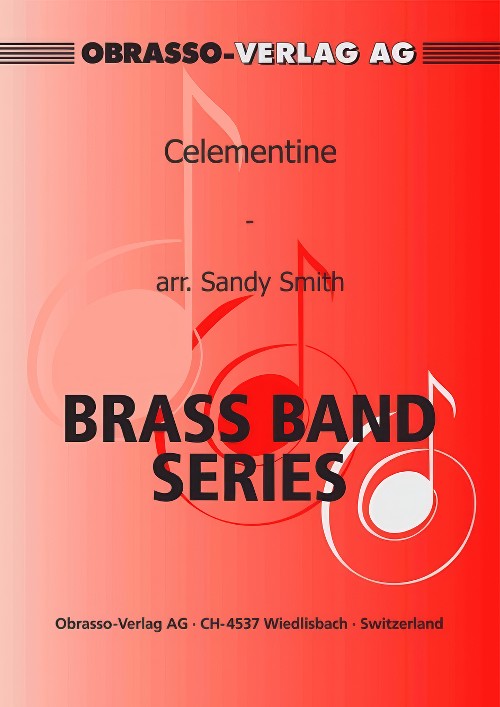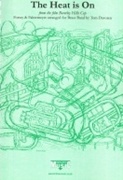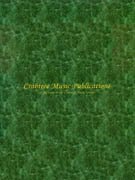Results
-
 £60.99
£60.99All Night Long (Brass Band - Score and Parts)
The famous American singer-songwriter Lionel Richie, who had many hits with his group The Commodores, as well as many international hits as a solo artist, released the single All Night Long at the start of the eighties. It was a huge success and in 1984 Richie sang his hit for an audience of millions during the closing ceremony of the Olympics in Los Angeles. Today, this song is a dance floor classic. 05:00
Estimated dispatch 7-14 working days
-
 £59.70
£59.70Celementine (Brass Band - Score and Parts) - Smith, Sandy
American Traditional
Estimated dispatch 7-14 working days
-
 £125.00
£125.00East Coast Pictures (Brass Band - Score and Parts) - Hess, Nigel - Littlemore, Phillip
East Coast Pictures is a suite of three short 'pictures' inspired by several visits to a small part of the American East Coast, an area that provides great extremes in the geography and the people.Suitable for Premier Youth/2nd Section Bands and aboveDuration: 16.00
Estimated dispatch 7-14 working days
-
 £35.00
£35.00HEAT IS ON, The (Brass Band) - Davoren, Tom
The Heat is On is a song written by Harold Faltermeyer and Keith Forsey and recorded by Glenn Frey for the American film Beverly Hllls Cop (1984).
Estimated dispatch 7-14 working days
-
 £54.99
£54.99Home (Brass Band - Score and Parts)
Recorded by American Idol winner Phillip Phillips, this dynamic hit song was featured during the 2012 Olympics as NBC's theme for women's gymnastics. 03:00
Estimated dispatch 7-14 working days
-
 £69.99
£69.99OL' MAN RIVER (Brass Band) - Kern, Jerome - Freeh, Mark
This scintillating arrangement by the American Mark Freeh of the Jerome Kern and Oscar Hammerstein classic, Showboat, is a classic in the brass band repertoire. This 'up tempo' big band arrangement is a perfect opener or closer to any programme and is also a fantastic way to showcase your drummer. Definitely one not to be missed! Recorded on QPRL237D Master Brass Vol.24. Duration: 6:00
Estimated dispatch 7-14 working days
-
 £60.99
£60.99Pasadena (Brass Band - Score and Parts)
This piece takes you on a journey to the sunny Californian city of Pasadena. The piece reflects two contrasting aspects of the city,. Firstly the serene expressive side with exquisite statues, works of art and sun drenched villas and secondly the hot Latin side with the street parade which leads up to the famous American Football final in the Rose Bowl stadium. 05:30
Estimated dispatch 7-14 working days
-
 £37.95
£37.95SOMEWHERE OUT THERE (Brass Band) - Barry, Darrol
from An American Tail
Estimated dispatch 7-14 working days
-
 £59.99
£59.99To a Wild Rose (Brass Band - Score and Parts) - MacDowell, Edward - Sparke, Philip
Edward MacDowell can be regarded as the first great American composer, although he disliked the idea of being classified as any sort of musical nationalist. He composed a large number of orchestral works but it is the charming and unpretentious suite of musical miniatures, Woodland Sketches, that has survived as his best-known work, with To a Wild Rose being the most popular. Philip Sparke has expertly arranged this simple work for brass band.Duration: 3.00
Estimated dispatch 7-14 working days
-
 £54.99
£54.99U.S. City Trip (Brass Band - Score and Parts)
Andrew Watkin takes us on a three-movement musical journey in U.S. City Trip. Each movement explores a world famous street in three different American cities. Swing, blues and rock styles accompany us as we visit the theatres on Broadway in New York, the clubs on Rampart Street in New Orleans' French Quarter and the casinos on the Las Vegas Strip. 07:25
Estimated dispatch 7-14 working days
